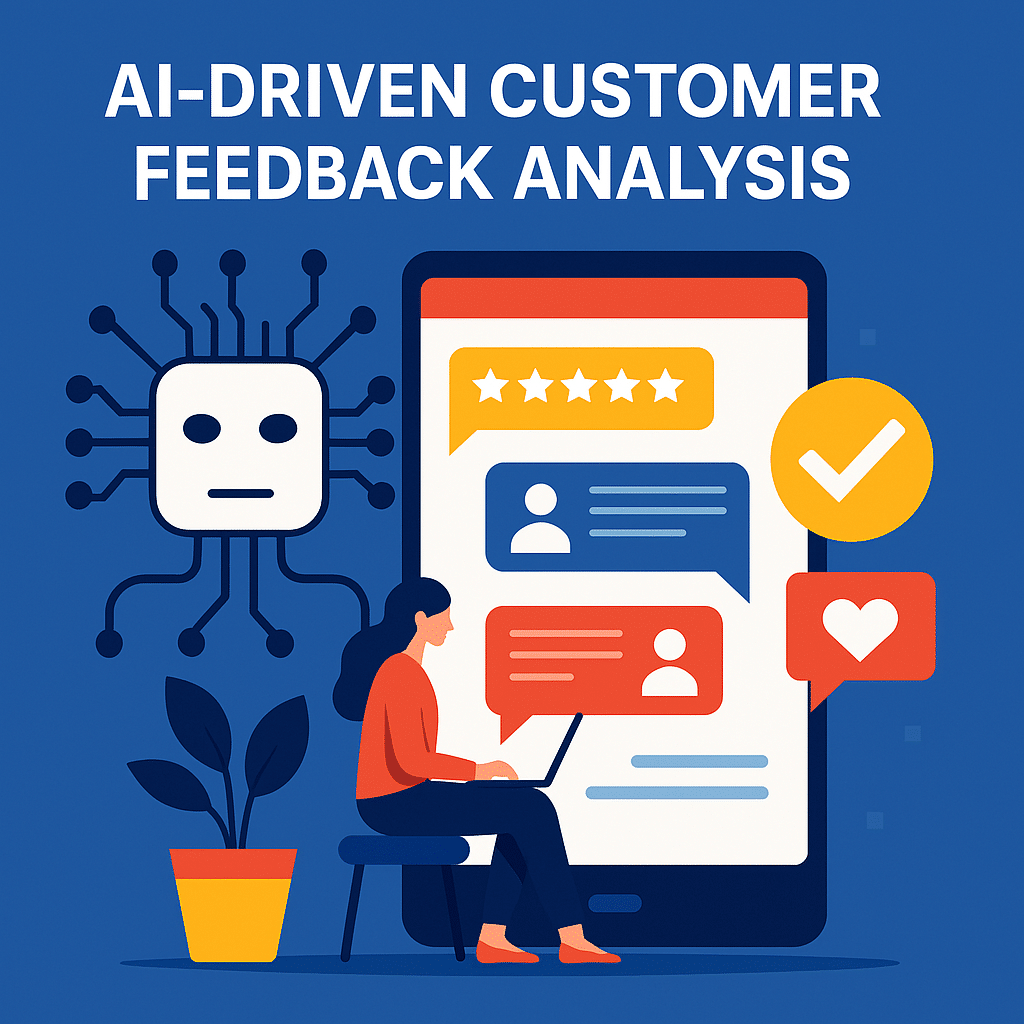In today’s competitive business landscape, leveraging technology is no longer just a benefit—it’s essential for success. One of the most transformative innovations in this regard is the integration of AI in B2B sales and digital marketing. AI technologies help businesses optimize sales processes, enhance customer engagement, and provide personalized experiences. However, as AI becomes more pervasive, it raises significant ethical considerations that must be addressed to ensure responsible use. This article explores the ethical implications of using AI in sales and marketing, outlines best practices for responsible AI adoption, and highlights future trends in the intersection of AI and ethical business practices.
What Are the Ethical Considerations When Using AI in Sales?
Understanding the Power of AI
AI technologies have the ability to process vast amounts of data at incredible speeds, providing businesses with insights that drive better decision-making. In the realm of B2B sales, AI enables the prediction of customer behavior, the optimization of marketing strategies, and the enhancement of the customer experience. However, while these innovations offer tremendous value, they also raise concerns such as ensuring fairness, avoiding bias, and maintaining transparency in how AI systems make decisions. The ethical use of AI requires careful planning and consideration to prevent harm while maximizing its benefits.
How to Ensure Ethical AI Use in Sales
To ensure ethical AI use, businesses must establish clear guidelines that prioritize fairness, transparency, and accountability. These practices should include:
- Bias Mitigation: Ensuring AI algorithms are free from bias by using diverse data sources and regular testing for fairness.
- Transparency: Providing clear insights into how AI systems make decisions, ensuring customers understand the role of AI in their interactions.
- Data Privacy and Consent: Implementing strong data privacy measures and obtaining explicit consent from customers before using their data for AI-driven processes.
These measures can help businesses use AI responsibly, ensuring it aligns with both ethical standards and customer expectations.
Addressing Bias and Transparency in AI Algorithms
AI algorithms are only as good as the data they are trained on. Bias in AI can lead to discriminatory outcomes, which can harm customer relationships and damage a company’s reputation. To mitigate bias:
- Diverse Data Collection: Ensure data is collected from diverse sources to reflect a broad range of customer experiences.
- Regular Audits: Conduct regular audits of AI systems to identify and correct biases in decision-making processes.
- Clear Communication: Businesses should be transparent about how their AI systems function, providing customers with insights into the decision-making process.
By addressing bias and enhancing transparency, businesses can foster trust and ensure that AI systems operate ethically.
How Does AI Impact Customer Experience in B2B Sales?
The Role of AI in Personalization
AI-driven personalization is transforming customer experience in B2B sales. By analyzing customer data, AI can tailor marketing campaigns, product recommendations, and sales strategies to individual preferences and needs. This level of personalization enhances customer satisfaction and loyalty. However, it is essential to strike a balance between personalization and respecting customers’ privacy. Ethical AI use involves being transparent about data collection practices and obtaining customer consent to use their data.
Balancing Privacy and Personalization
Balancing privacy and personalization is a delicate task that requires careful consideration of ethical implications. While AI technologies enable hyper-personalized experiences, they also necessitate access to personal data, raising privacy concerns. Companies must adhere to privacy regulations and establish clear data governance policies. Informing customers about how their data will be used and giving them control over their information fosters trust and ensures ethical AI practices. Ethical AI in B2B sales means respecting customer privacy while delivering personalized experiences responsibly.
Ethical AI Practices for Enhancing Customer Experience
To enhance customer experience ethically, businesses should adopt AI practices that prioritize transparency, consent, and fairness. This includes being open about AI-driven processes, obtaining explicit permission for data use, and ensuring that AI algorithms are unbiased and just. Companies can also provide options for customers to opt-out of AI interactions if they prefer. By implementing these ethical AI practices, businesses can improve customer experience while maintaining high ethical standards.

What Are the Key Ethical Guidelines for AI in Marketing?
Adhering to Community Guidelines
Ethical use of AI in marketing requires adherence to community guidelines that emphasize transparency, accountability, and respect for privacy. These guidelines, like those from Forbes, encourage companies to:
- Be transparent about the use of AI in marketing campaigns.
- Ensure fairness by using AI tools that do not discriminate against any customer group.
- Maintain customer privacy by safeguarding customer data and ensuring consent before using it.
Following these ethical guidelines ensures that AI-driven marketing strategies are not only effective but also responsible.
Implementing Ethical AI in Digital Marketing
Implementing ethical AI in digital marketing involves:
- Designing AI algorithms that respect user privacy.
- Providing transparency about how AI tools influence marketing campaigns.
- Ensuring that AI systems do not perpetuate biases in customer targeting or ad placements.
Marketers should also receive training on AI ethics to understand the implications of their AI-driven campaigns and make informed decisions that prioritize customer well-being.
How Can Companies Ensure Responsible AI Use in Sales?
Creating a Framework for Ethical AI Use
To maintain ethical AI practices in B2B sales, companies should create a structured framework that includes clear guidelines for AI deployment. This framework should cover:
- Transparency in how AI makes decisions.
- Accountability in AI’s impact on customer relationships and sales performance.
- Data privacy and the ethical handling of customer information.
This framework should be flexible and adaptable to account for new ethical challenges as AI technology evolves.
Training Teams on AI Ethics
Training is a key component of ethical AI use. Sales and marketing teams should be educated about the ethical implications of AI in their processes. Training programs should focus on:
- Understanding AI’s role in decision-making.
- Identifying potential biases in AI systems.
- Emphasizing transparency, fairness, and accountability in all AI interactions.
By empowering teams with knowledge on AI ethics, businesses can promote responsible AI use throughout their organization.
Regularly Auditing AI Systems
Regular audits of AI systems are essential to ensure they remain aligned with ethical standards. Audits can help businesses:
- Identify biases or fairness issues in AI algorithms.
- Evaluate transparency in how decisions are made by AI systems.
- Assess AI’s overall impact on customer experience and business performance.
Frequent audits enable businesses to adjust their AI practices proactively and maintain customer trust.
What Is the Future of AI and Ethics in Sales?
The Rise of AI and Ethical Implications
The rise of AI brings numerous opportunities but also significant ethical implications. As AI becomes more integrated into sales and marketing, the potential for ethical dilemmas increases. Companies must proactively address these implications by developing comprehensive ethical guidelines and promoting responsible AI use. The future of AI in sales will depend on the industry’s ability to navigate these ethical challenges while harnessing the benefits of AI technologies.
Exploring the Potential of AI in Sales
The potential of AI in sales is vast, offering opportunities for enhanced personalization, improved customer insights, and optimized sales processes. However, realizing this potential requires careful consideration of ethical concerns. Companies must explore AI’s potential responsibly, ensuring that their AI-driven sales strategies align with ethical standards. By doing so, businesses can leverage AI to achieve sales success while maintaining a commitment to ethical practices.
The Ongoing Debate on AI and Ethics
The ongoing debate on AI and ethics underscores the importance of continuous dialogue and reflection. As AI technologies evolve, new ethical challenges will arise, necessitating ongoing discussions about the responsible use of AI. Stakeholders, including businesses, policymakers, and consumers, must collaborate to establish ethical frameworks that guide AI use. This collective effort will ensure that the integration of AI in sales and marketing is both beneficial and ethical, fostering trust and accountability in the digital age.
Conclusion
Integrating AI into B2B sales and marketing offers significant opportunities for businesses to enhance customer experiences and drive sales growth. However, it also raises important ethical questions about fairness, transparency, and privacy. By adopting clear ethical guidelines, implementing responsible AI practices, and fostering a culture of transparency, companies can use AI to achieve business success while maintaining customer trust. As AI technology continues to evolve, businesses must stay vigilant, ensuring that their AI-driven strategies are aligned with ethical standards and customer expectations.
FAQs
1. What are the ethical considerations when using AI in B2B sales?
When using AI in B2B sales, ethical considerations include ensuring fairness, avoiding biases, maintaining transparency, and safeguarding customer data. It’s crucial to develop AI systems that provide equal opportunities for all customers, without discrimination, and clearly communicate how AI makes decisions. Additionally, respecting customer privacy and obtaining explicit consent for data usage are vital to maintaining ethical standards.
2. How can companies ensure ethical AI use in sales and marketing?
To ensure ethical AI use, companies should implement robust guidelines that promote transparency, fairness, and accountability. This involves developing unbiased AI algorithms, ensuring data privacy, obtaining customer consent, and regularly auditing AI systems to detect and mitigate any ethical concerns. Businesses should also foster a culture of responsibility in AI use by training teams on ethical practices and making data governance a priority.
3. What role does transparency play in AI ethics?
Transparency in AI is critical for building trust with customers. Businesses must clearly explain how their AI systems make decisions, especially when customer data is being used to personalize marketing or sales strategies. Providing insights into AI algorithms, their functions, and the data they use helps customers understand the processes behind automated decisions and promotes ethical practices in AI deployment.



